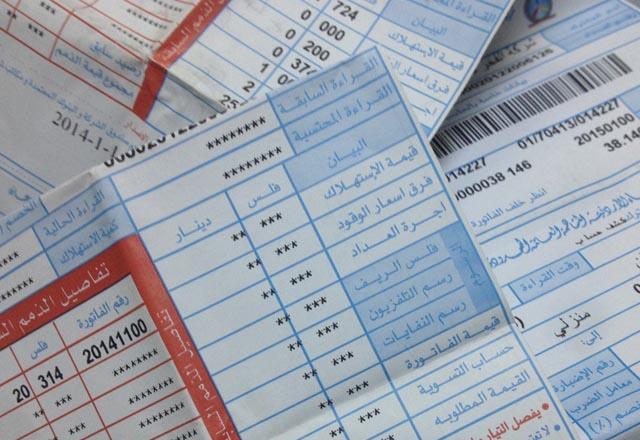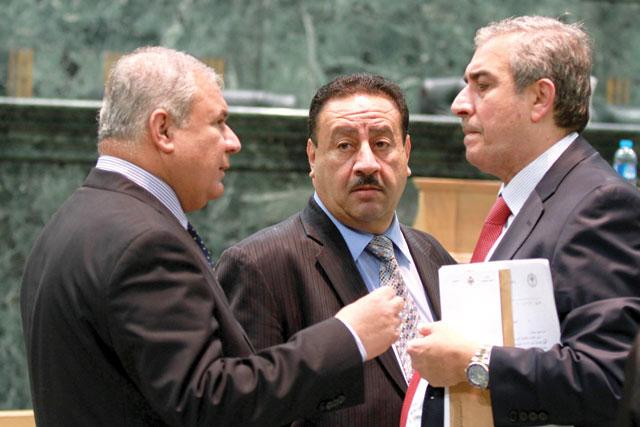You are here
Gov’t, House panel reach compromise over electricity tariffs
By Raed Omari - Jan 21,2015 - Last updated at Jan 21,2015

AMMAN — The government on Wednesday accepted a compromise to increase electricity prices by 7.5 per cent instead of 15 per cent under a deal it reached with MPs, a lawmaker said.
The confirmation was conveyed by head of the House Financial Committee MP Yousef Qorneh who expressed hope that the deal would alleviate the existing tension between the Lower House and the government over the new electricity pricing mechanism.
"The deal is fair and balanced and can help the government address the National Electric Power Company’s [NEPCO] losses and at the same time keep a large segment of society unharmed by the new electricity tariffs," Qorneh told The Jordan Times.
The government and a House ad hoc panel, representing the finance and energy committees, had been engaged in discussions over the last two weeks to discuss the electricity prices.
The government insisted on the 15 per cent increase to electricity prices as a necessary measure to address NEPCO’s cumulative debts while the legislators insisted on freezing the decision, citing the sharp decline in oil prices internationally.
Meanwhile, some MPs expressed their rejection of the deal their colleagues reached with the government, insisting on keeping electricity prices “untouched”.
Deputy Ali Sneid described the parliamentary committee’s deal with the government as “against the interests of Jordanians and in total disregard of the new economic facts brought about by the oil prices”.
“I speak on behalf of 10 other deputies who will fight under the Dome to keep electricity prices unchanged,” Sneid told The Jordan Times, adding: “All options, including a motion of no confidence against the government, are on the table to press for a no change to electricity prices.”
The House Nahda bloc issued a statement on Wednesday echoing the same remarks of Sneid and his colleagues.
In the statement, a copy of which was seen by The Jordan Times, members of the bloc described the decision to increase electricity tariffs as “unfair, illogical and inhuman, adding more complications to Jordanians’ already complicated conditions”.
The Islamic Action Front, the Kingdom’s largest opposition party, also denounced the increase to electricity tariffs, calling for reconsidering energy prices in the country to be in line with the considerable decline in international oil prices.
The cumulative deficit of NEPCO, as a result of disruptions in Egyptian gas supplies, stood at around JD4.5 billion by the end of last year, according to Finance Ministry figures, out of a total public debt of around JD20.4 billion.
In 2014, the government increased prices of electricity for households and industries with monthly consumption of more than 600 and 10,000 kilowatt hours (kWh) respectively, as part of a gradual hike in prices to offset NEPCO’s debts, which are paid by the Treasury.
Electricity tariffs for households whose monthly consumption is 601kWh increased from JD0.141 to JD0.152 per kWh and will rise gradually until they reach JD0.188 by 2017.
Related Articles
The government is likely to accept a compromise in its dispute with Parliament over the new electricity tariffs, under which it will charge half the originally planned price hike, a lawmaker said.
The Lower House on Sunday rejected a recommendation by a joint parliamentary committee to raise electricity tariffs by 7.5 per cent instead of 15 per cent under a deal it recently reached with the government.
The Lower House and the government are likely to remain at loggerheads over hiking electricity tariffs as a group of MPs is lobbying for a no-confidence vote.


















